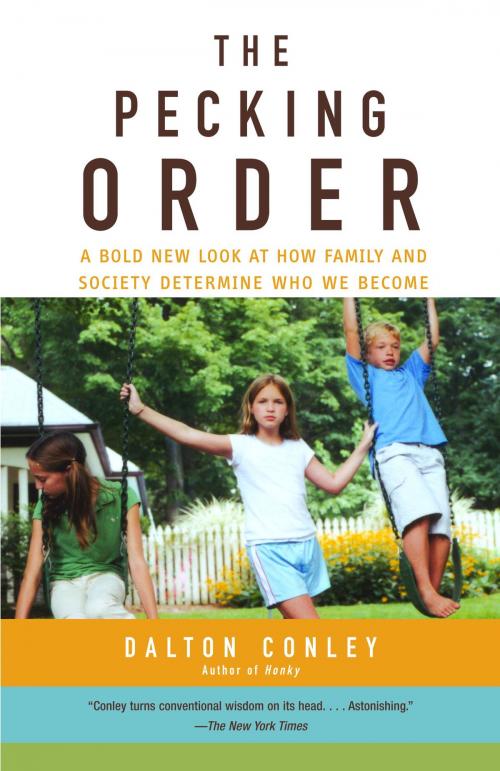The Pecking Order
A Bold New Look at How Family and Society Determine Who We Become
Nonfiction, Family & Relationships, Family Relationships, Siblings, Social & Cultural Studies, Social Science, Sociology, Parenting| Author: | Dalton Conley | ISBN: | 9780307489456 |
| Publisher: | Knopf Doubleday Publishing Group | Publication: | February 25, 2009 |
| Imprint: | Vintage | Language: | English |
| Author: | Dalton Conley |
| ISBN: | 9780307489456 |
| Publisher: | Knopf Doubleday Publishing Group |
| Publication: | February 25, 2009 |
| Imprint: | Vintage |
| Language: | English |
The family is our haven, the place where we all start off on equal footing — or so we like to think. But if that’s the case, why do so many siblings often diverge widely in social status, wealth, and education? In this groundbreaking and meticulously researched book, acclaimed sociologist Dalton Conley shatters our notions of how our childhoods affect us, and why we become who we are. Economic and social inequality among adult siblings is not the exception, Conley asserts, but the norm: over half of all inequality is within families, not between them. And it is each family’s own “pecking order” that helps to foster such disparities. Moving beyond traditionally accepted theories such as birth order or genetics to explain family dynamics, Conley instead draws upon three major studies to explore the impact of larger social forces that shape each family and the individuals within it.
From Bill and Roger Clinton to the stories of hundreds of average Americans, here we are introduced to an America where class identity is ever changing and where siblings cannot necessarily follow the same paths. This is a book that will forever alter our idea of family.
The family is our haven, the place where we all start off on equal footing — or so we like to think. But if that’s the case, why do so many siblings often diverge widely in social status, wealth, and education? In this groundbreaking and meticulously researched book, acclaimed sociologist Dalton Conley shatters our notions of how our childhoods affect us, and why we become who we are. Economic and social inequality among adult siblings is not the exception, Conley asserts, but the norm: over half of all inequality is within families, not between them. And it is each family’s own “pecking order” that helps to foster such disparities. Moving beyond traditionally accepted theories such as birth order or genetics to explain family dynamics, Conley instead draws upon three major studies to explore the impact of larger social forces that shape each family and the individuals within it.
From Bill and Roger Clinton to the stories of hundreds of average Americans, here we are introduced to an America where class identity is ever changing and where siblings cannot necessarily follow the same paths. This is a book that will forever alter our idea of family.















